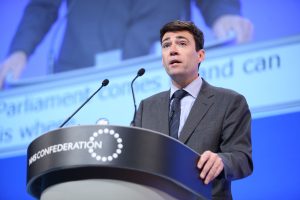Who is the new Conservative Party Leader?
On Saturday 2 November, it was announced that Kemi Badenoch MP had been elected leader of the Conservative Party, receiving 53,806 votes to leadership rival Robert Jenrick MP’s 41,388 votes. This was the closest Conservative leadership election under the current rules.
What do we know about Kemi Badenoch’s policies?
During her leadership campaign, Badenoch spoke of Conservatism being ‘in crisis’ and under attack from a new ‘progressive ideology’ involving ‘identity politics’ (politics based on a particular identity such as race, religion or gender), constant state intervention, and ‘the idea that bureaucrats make better decisions than individuals’ or elected politicians. Her leadership campaign, titled ‘Renewal 2030’, focused on a reset rather than specific policy promises. Badenoch argued the Conservative Party needs to return to its core values and then come up with new policies that recognise this reality.
Who is in the new Shadow Cabinet?
Following her election as Leader of the Conservative Party, Badenoch has now appointed her Shadow Cabinet:
- Shadow Chancellor of the Exchequer: Mel Stride MP
- Shadow Secretary of State for Foreign, Commonwealth and Development Affairs: Dame Priti Patel MP
- Shadow Home Secretary: Chris Philp MP
- Shadow Chancellor of the Duchy of Lancaster and Shadow Secretary of State for Northern Ireland: Alex Burghart MP
- Shadow Secretary of State for Defence: James Cartlidge MP
- Shadow Secretary of State for Justice: Robert Jenrick MP
- Shadow Secretary of State for Education: Laura Trott MP
- Shadow Health and Social Care Secretary: Ed Argar MP
- Shadow Secretary of State for Levelling Up, Housing and Communities: Kevin Hollinrake MP
- Shadow Secretary of State for the Environment, Food and Rural Affairs: Victoria Atkins MP
- Shadow Secretary of State for Business and Trade: Andrew Griffith MP
- Shadow Secretary of State for Energy Security and Net Zero and Shadow Minister for Equalities: Claire Coutinho MP
- Shadow Secretary of State for Work and Pensions: Helen Whately MP
- Shadow Secretary of State for Transport: Gareth Bacon MP
- Shadow Secretary of State for Culture, Media and Sport: Stuart Andrew MP
- Shadow Secretary of State for Science, Innovation and Technology: Alan Mak MP
- Shadow Secretary of State for Scotland and Shadow Minister of State for Energy and Net Zero: Andrew Bowie MP
- Shadow Secretary of State for Wales and Shadow Minister for Women: Mims Davies MP
- Opposition Chief Whip (Commons): Dame Rebecca Harris MP
- Shadow Leader of the House of Commons: Jesse Norman MP
- Shadow Leader of the House of Lords: Lord True
- Co-Chairmen of the Party: Nigel Huddleston MP and Lord Johnson
- Shadow Chief Secretary to the Treasury: Richard Fuller MP
This Shadow Cabinet consists of many who served in the previous Government, with all of them having previous ministerial experience. Whilst primarily made up of Badenoch backers, the appointments have made attempts to unify the party by reaching out to key MPs in rival camps, as well as former leadership contenders including Mel Stride MP, Priti Patel MP, and Robert Jenrick MP.
BREVIA CONSULTING PROVIDES STRAIGHTFORWARD POLITICAL ADVICE AND SUPPORT TO BUSINESSES AND ORGANISATIONS
Discover how Brevia can help you and your organisation by contacting the Brevia Team on 020 7091 1650 or contact@brevia.co.uk



